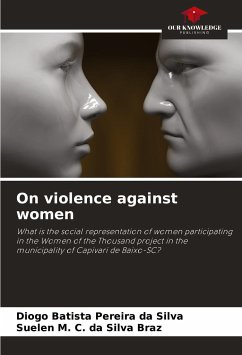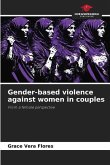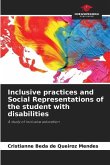This book is the result of a study whose general objective was to understand the social representation of women participating in the Women's Project in the municipality of Capivari de Baixo - SC (BRAZIL). The research subjects were women participating in a class of the Women's Thousand Project, a federal government project offered by the Federal Institute of Santa Catarina - IFSC, which provides vocational courses for women in social vulnerability. Analysis of the results showed that despite the development of women in search of new knowledge about violence against women, it can be seen that social representation is linked to a social and cultural phenomenon in which women are perceived as guilty of the violence they end up suffering. Some of the women analyzed also showed feelings of fear, guilt, revolt and social isolation in relation to the violence they suffered, despite the fact that the social representation of women is linked to the culture of feminist women.
Bitte wählen Sie Ihr Anliegen aus.
Rechnungen
Retourenschein anfordern
Bestellstatus
Storno








